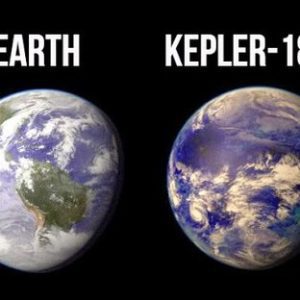The key reason is the same as the burning hatred so many JRR Tolkien fans feel towards the works of GRR Martin.

Here fighting an imgarinary battle
Tolkien believed with some passion about stories of right and wrong, good and just fighting evil and depraved, with good ultimately prevailing. He thought stories should be like that and suitable for children if possible. His works follow the guideline, you never really wonder whether Orcs have it coming or not, because in Tolkiens’ world they do. You don’t wonder whether Sauron may be right, he clearly isn’t and his victory would be ruinous for the world. There is no debate about what needs to be done, it’s just that the goal may be too difficult to reach.
Frank Herbert and later George Martin disagree. Their stories are about falliability of humans, what it means to be a human, trappings of power and the corrupt nature of people who seek power. Dune and A Song of Ice and Fire are in different genres (science fiction and high fantasy respectively), but they’re vastly more similar than A Song of Ice and Fire is to Lord of the Rings or Silmarillion. The similarities there are merely superficial: magic, dragons, swords, that sort of thing. In terms of actual content that matters they’re completely different. The works of these two also aren’t suitable for children.
Overall Tolkien believed, with a passion, fantasy literature should be escapist and speak of worlds we want to be true, while not delving into the ugliness of the world. Herbert, and later Martin, showed he was wrong. There’s nothing wrong with escapist literature, but you absolutely can make a really good story about a space empire that discusses the nature of corruption in governance and you can make a really good story about a dragon princess that discusses the conflict between your personal self (who am I, who do I love, who are my friends, my enemies …) and your public self (who are my bannermen, who is my steward, how do I deal with this rebel, …). The world will be richer and better for it.
Tolkien was a bit narrow minded when it came to writing. That’s the gist of it, really.
Tolkien stated “I dislike DUNE with some intensity,” but he did not give a reason why.
However, you don’t need to look far—only as far as Tree and Leaf—to understand Tolkien’s views on story and artistry.
- Tolkien was interested in stories that were good for their own sake. Even in dark moments, the story should be a delight to the reader. By Tolkien standards, Dune is quite gratuitous in its bloodthirstiness, violence and corruption. Herbert takes a positive delight (it would seem) in describing the debauchery of the Harkonnens.
- On a similar level, Tolkien always wrote in a way which was suitable for children. He discusses this in Tree and Leaf. He did not see any benefit in filling out his stories with sex and gore.
- Tolkien’s world is ultimately a world of grace and kindness. These, to Tolkien, were the marks of the true hero, of whom Gandalf and Aragorn were the contrasting pinnacles. These are qualities almost entirely absent from Dune, which is much more focussed on power and revenge. This is somewhat like the difference between Shakespeare and Webster. The Duchess of Malfi has a very similar milieu to Dune. Tolkien’s own heroes were Gawain and Beowulf, rather than Machiavelli.
- Tolkien describes world-building as an imaginative journey. He discusses the difference between simply writing ‘the green sun’ and thoroughly imagining it. To him, the imagination was the main thing. Dune, by contrast, is ‘Lawrence of Arabia in space’. Herbert was reportedly[1][2] very taken by the film,[3]and transplants the milieu wholesale into a science-fiction setting.[4][5] To Tolkien, this was an unacceptable shortcut. Remember that he criticised his friend CS Lewis for borrowing and mixing in Narnia. Herbert’s method is far more heinous, from a Tolkien point of view.
- Tolkien loved language. He plays with it endlessly, and there is an extraordinary sound to his prose if you read it aloud. Herbert has a superficial reference to multiple languages, such as Chakobsa, but it is quite evidently that of the non-linguist.
- Tolkien didn’t like preachy writing. It wasn’t just allegory he was opposed to. Dune is full of little asides telling us about ideal societies, and what it means to be human. It would have grated Tolkien on most pages.
- Tolkien did not like modernism. Dune is a child of modernism in a much clearer way than, say, Foundation or Islands in the Sky. Its philosophy is a blend of existentialism, proto-New-Ageism, nihilism and rationalist scepticism. All of these would have seemed barren to Tolkien, and Herbert lets them go unchallenged.
- Tolkien is concerned with heroes. Dune is concerned with anti-heroes. Herbert is quite explicit about this: “Here lies a toppled god / his fall was not a small one / we did but build his pedestal / a narrow and a tall one” (Tleilaxu epitaph, Dune Messiah).
- Above everything, Dune had been very publicly compared to and described as the science-fiction equivalent of The Lord of the Rings. Tolkien would have been aghast to see what people thought was an equivalent to his writing, which was opposite in almost every respect.
Ultimately, Dune is full of the things that Tolkien detested, and having the book described as the equivalent of his own book must have irked him deeply.
Tolkien was deeply Catholic, and he shunned and abhorred Islam, which he saw as an inhumane and disgusting religion. On contrast, “Dune” is full of Islamic references and it corresponds rather well on Islamic concepts.
But perhaps an even more important thing is that Tolkien believed there is something good in this world and it is worth of fighting for. Herbert’s world is darkly Nihilistic, its heroes and villains being the same grey goo. The anti-religion message of Dune must have been a huge turnoff to Tolkien.
Tolkien was a WWI veteran – a true grunt, having seen the carnage of Somme. He had seen what kind of evil humans could do to each other, yet he still believed humans could be capable of moral choices. The culmination of the first Dune book is when Paul Atreides makes an immoral choice for the greater good. This “end justifies the means” utilitarianism must have had disgusted Tolkien to the boot.
Dune was also basically the inverse of his works, and subtlety deconstructed things like monarchy, morality and painted them in a negative light. Moreover Dune does not have any likeable characters. Even Morgoth and Sauron have positive attributes. Fëanor was more tragical than evil. Maedhros and Maglor have their own fanboys. All the Harkonnens are simply disgusting, and few are those who admire Paul Atreides to any measure.
Perhaps the most striking example are the female characters. Both The Silmarillion and Lord of the Rings pass the Bechdel test with flying colours. Tolkien respected women and considered to be morally superior to men, and his strong female characters – Galadriel, Lûthien, Melian and Eöwyn – are believable and independent on their own. Conversely, Dune fails the Bechdel test; for Herbert, women are but statistics.
The only text I have seen that supports this is this:

Tolkien says he disliked it. I don’t know why, so I’ll speculate, the way some other people have. Take all of this with an entire shaker of salt. I do enjoy a good sci-fi/fantasy compare and contrast.
I think it has to do with morality. Middle-Earth is very much a case of Christian morality, but the emotional cast and aesthetics of it are Norse.
By contrast, Frank Herbert was a Zen Buddhist who was raised Catholic. Surprise, surprise: the religions in his universe are mostly fusions of Abrahamic religion with Zen Buddhism. Reading his books gives me the impression that he experimented with psychedelics, and that he ascribed a spiritual significance to doing so, which is also not surprising, given that he was writing in the 1960s and 70s.
The morality of Herbert’s universe is sort of Nietzschean. The good guys are good because they are disciplined and dedicated to a transcendent goal that they value above all else. The non-Nietzschean part of it is that Herbert does include a certain degree of humanism in his work: the Atreides value human life more than most other Great Houses, and that’s one reason they’re the good guys.
Aesthetically, the Dune novels are… well, they’re sci-fi. It’s rationalism. Superhumans exerting their will on the universe and contending to show the superiority of their values are what the Dune universe is all about. And that’s where its iconic features come from: Fremen superhumans surviving the inhospitable environment of Arrakis, Mentats frying their brains with Sappho juice to out-think their opponents, Saudaukar training on Selusa Secundus to become the most ferocious warriors. The struggle for power gives rise to an aesthetic of “chess and karate,” as it were. All fighting and strategic thinking.
None of that would have sat well with Tolkien. Herbert’s hyper-rationalism would not have appealed to Tolkien, who would have seen all of the power-hungry Great Houses as just so many bands of Orcs vying for control. There’s a point in Children of Dune where a Mentat’s internal monologue about his training serves as a vehicle for Herbert to fondly reminisce about using peyote. I think — and remember, I’m just speculating here — that Tolkien would have seen that as flaccid sentimentalism. At worst, he would have seen it as drug-addled nonsense.
Edit: From the comments, this answer apparently came across as critical of Tolkien, although it wasn’t meant to be. Let me clarify a few points:
- Saying that Tolkien’s work has a core of Christian morality is not a critcism of Tolkien.
- Calling Herbert’s universe Nietzschean is not approbatory.
- Neither is calling Herbert’s aesthetics “rationalistic” meant as a compliment, as if I’m some computer nerd who reads RationalWiki and thinks Dune is better because it has spaceships and laser guns.
- Mentioning Herbert’s Buddhism is not an attempt to paint Herbert as a hip, socially-conscious, eclectic Bohemian. Herbert was more conservative than most Quorans would be comfortable with.
- Mentioning Tolkien’s nationality, occupation, or religion, is not an attempt to portray Tolkien as some clueless parochial little-England altar boy. Tolkien experienced things in the Somme that would probably make you crap yourself, and was likely both more intelligent and more worldly-wise than you are.
Tolkien wrote a letter to Sterling E. Lanier in 1965 saying “Dear Mr. Lanier, I received your book Dune just before I went abroad for a short while. Hence the delay in acknowledging it. I don’t think I shall have time to read it until I next get a holiday.” Then in 1966, Tolkien wrote a letter to a man named John Bush saying “Thank you for sending me a copy of Dune. I received one last year from Lanier and so already know something about the book. It is impossible for an author still writing to be fair to another author working along the same lines. At least, I find it so. In fact, I dislike DUNE with some intensity, and in that unfortunate case it is much the best and fairest to another author to keep silent and refuse to comment. Would you like me to return the book as I already have one, or to hand it on?”
Based on that quotation it seems to me to be likely that Tolkien disliked Dune not despite its similarities to The Lord of the Rings but because of them. Since Tolkien, as he said, was writing along similar lines and as such (I’m surmising) it was difficult for him to read Dune without imagining what he would have done differently from Frank Herbert and that made it challenging for him to enjoy the book






